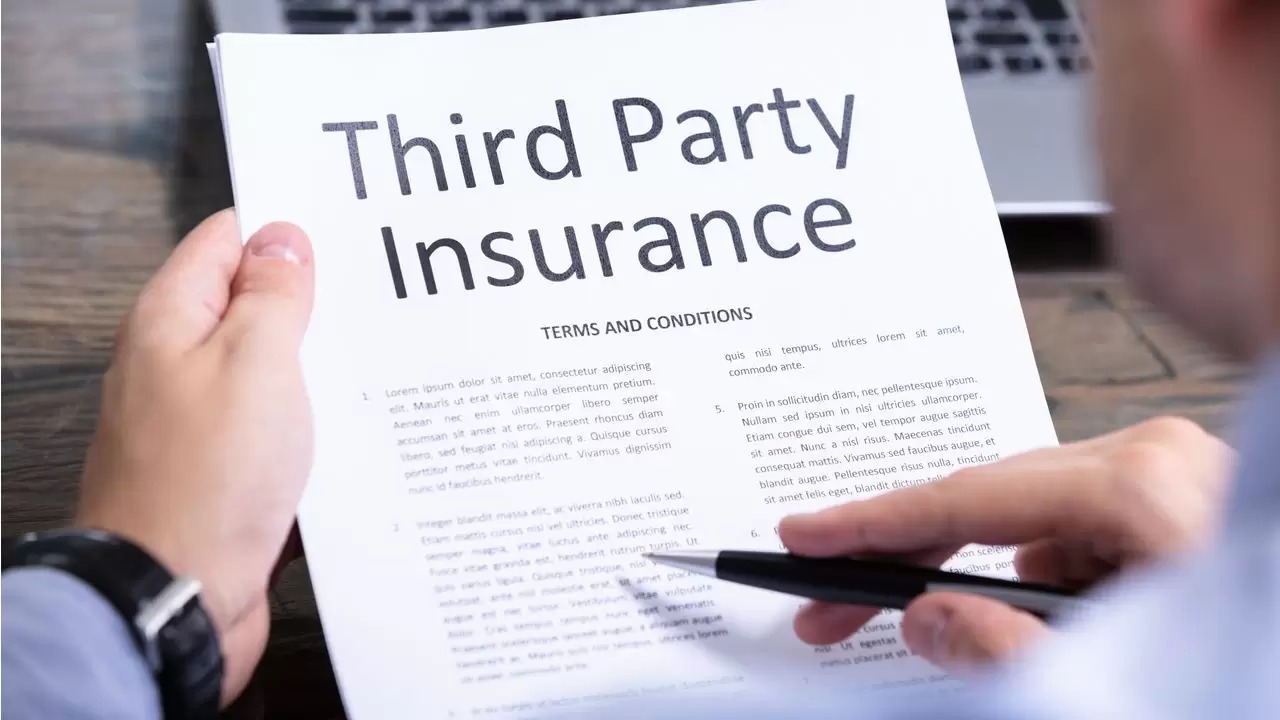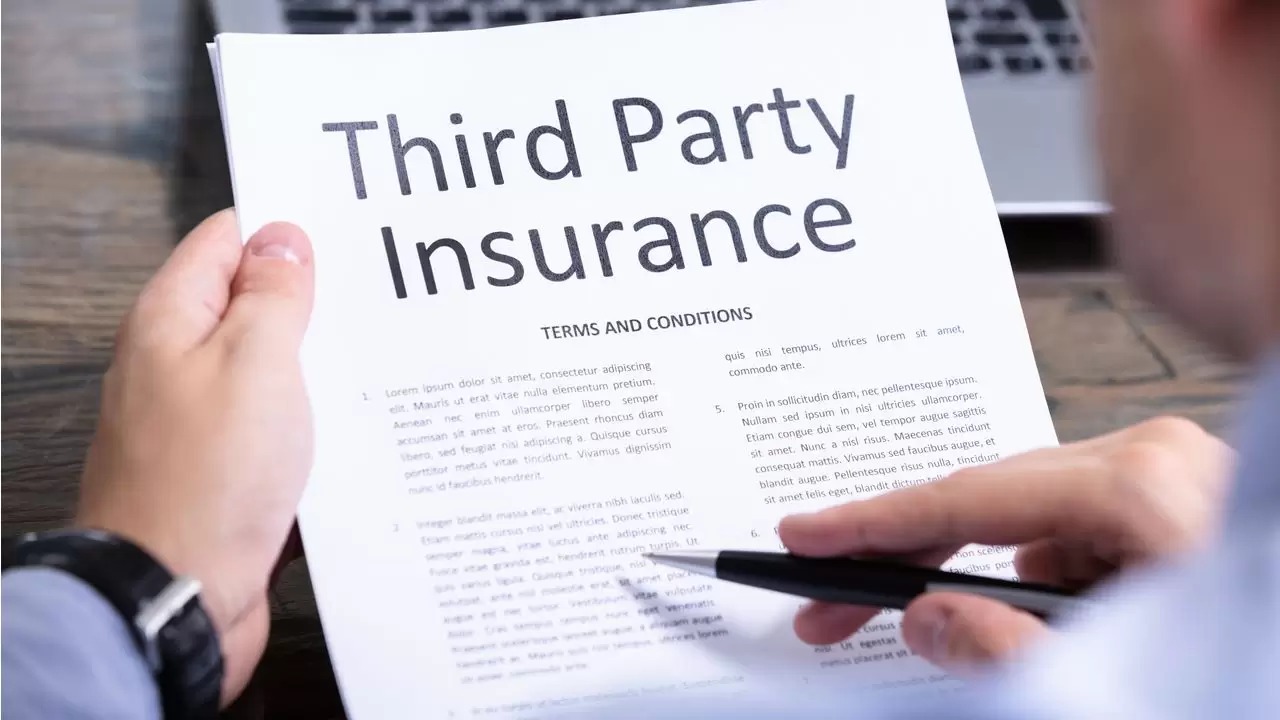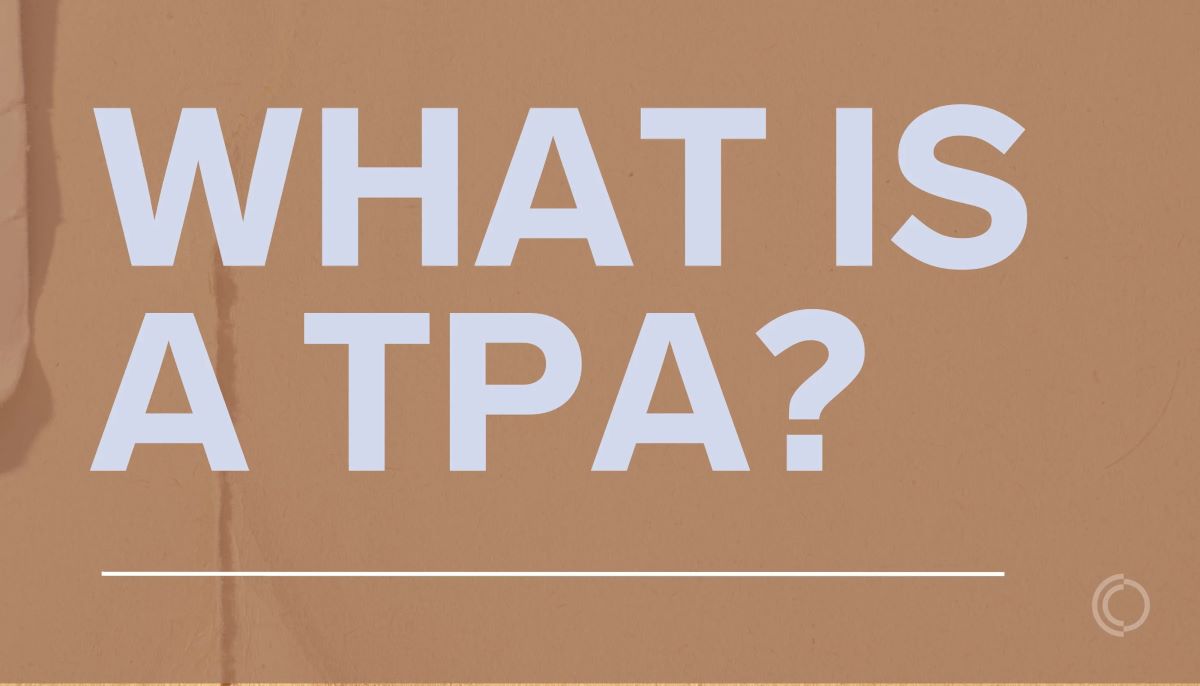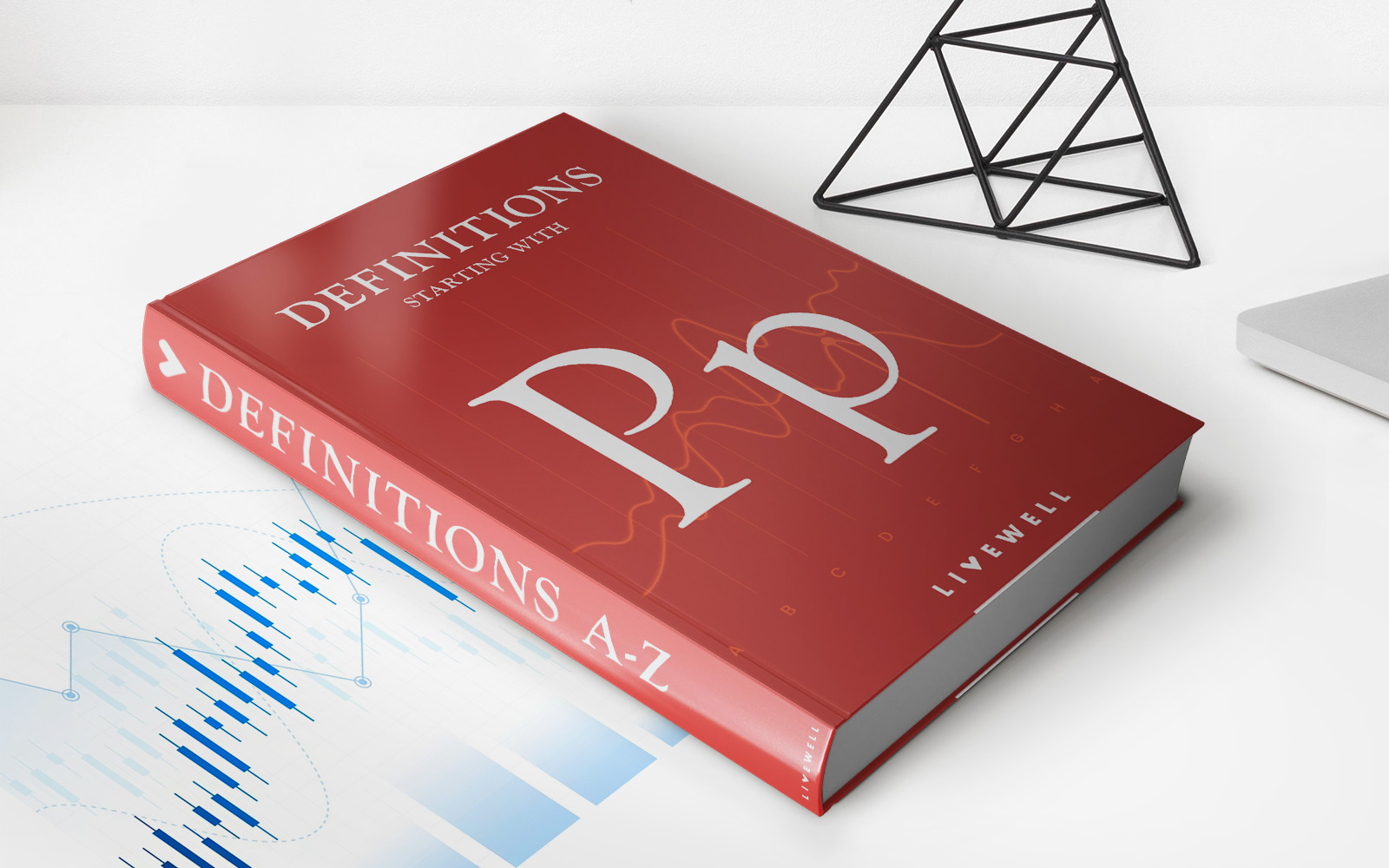

Finance
What Is A Third Party Insurance?
Published: November 6, 2023
Understand the concept of third-party insurance in the finance sector and its significance. Learn how this type of coverage can protect you from financial liabilities.
(Many of the links in this article redirect to a specific reviewed product. Your purchase of these products through affiliate links helps to generate commission for LiveWell, at no extra cost. Learn more)
Table of Contents
- Introduction
- Definition of Third Party Insurance
- Coverage provided by Third Party Insurance
- Benefits of Third Party Insurance
- Limitations of Third Party Insurance
- Requirements and Regulations for Third Party Insurance
- Difference between Third Party Insurance and Comprehensive Insurance
- How to Purchase Third Party Insurance
- Conclusion
Introduction
In the world of insurance, there are various types of policies that cater to different needs and provide different levels of coverage. One such policy is third party insurance, also known as liability insurance. While comprehensive insurance policies offer a wide range of coverage, third party insurance focuses specifically on protecting individuals or businesses against claims made by a third party.
Third party insurance is commonly required and highly recommended for anyone who owns a vehicle, runs a business, or engages in activities that could potentially harm others. It provides essential protection and financial coverage in the event of accidents, damages, or injuries caused by the insured party.
Understanding the concept of third party insurance is crucial for individuals and businesses alike. In this article, we will delve into the details of third party insurance, including its definition, coverage, benefits, limitations, requirements, and how it differs from comprehensive insurance. So, let’s explore the fascinating world of third party insurance and unravel the mysteries behind this essential form of protection.
Definition of Third Party Insurance
Third party insurance is a type of insurance policy that provides coverage for the insured party against claims made by a third party. In simple terms, it offers financial protection to the policyholder if they are held responsible for causing damage, injury, or loss to another person or their property. The third party, in this context, refers to anyone who is not directly involved in the insurance policy, but who may be affected by the actions of the insured party.
When it comes to third party insurance, the insured party is typically the person or entity that purchases the insurance policy, such as a vehicle owner or business owner. The insurance company providing the policy becomes responsible for compensating the third party for any valid claims made against the insured party.
This type of insurance is commonly required by law in many countries, as it ensures that individuals and businesses take financial responsibility for any harm or damage they may cause to others. For example, in the case of vehicle insurance, third party insurance is usually a mandatory requirement to legally operate a vehicle on the road.
It’s important to note that third party insurance only covers the liability of the insured party towards the third party. It does not provide any coverage for damages or injuries sustained by the insured party themselves or their property. For such coverage, individuals or businesses may need to consider comprehensive insurance policies.
In summary, third party insurance is a form of protection that ensures the insured party has financial coverage if they are held liable for causing harm or damage to another person or their property. By providing this coverage, it helps individuals and businesses fulfill their legal obligations and protect themselves against potential claims and lawsuits.
Coverage provided by Third Party Insurance
Third party insurance provides coverage for a range of scenarios where the insured party may be held liable for causing damage, injury, or loss to a third party. The specific coverage depends on the terms and conditions of the insurance policy, but generally includes the following:
- Third Party Liability: This is the primary coverage provided by third party insurance. It protects the insured party against claims made by a third party for bodily injury or property damage caused by the insured party’s actions or negligence. If the insured party is found legally responsible for the damages, the insurance company will cover the costs of the claim up to the specified policy limits.
- Legal Expenses: Third party insurance may also cover the legal expenses incurred by the insured party in defending against a claim made by a third party. This can include attorney fees, court costs, and other related expenses that arise from a legal dispute.
- Medical Expenses: In the event of an accident where the insured party is at fault and a third party sustains injuries, third party insurance may cover the medical expenses incurred by the injured party for necessary medical treatment, hospitalization, and rehabilitation.
- Property Damage: If the insured party causes damage to another person’s property, whether it’s a vehicle, building, or other possessions, third party insurance can provide coverage for the repair or replacement costs of the damaged property.
- Personal Accident Coverage: Some third party insurance policies may include personal accident coverage, which provides financial compensation to the insured party for injuries or disabilities suffered as a result of an accident. This coverage is typically limited and may have specific conditions and exclusions.
It’s important to understand that the coverage provided by third party insurance is limited to the liability of the insured party towards the third party. It does not cover any damages or injuries sustained by the insured party themselves or their property. For comprehensive coverage that includes protection for the insured party and their property, individuals or businesses may need to consider purchasing additional insurance policies.
Overall, third party insurance is designed to provide financial protection and peace of mind to the insured party in the event of claims made by a third party. It ensures that the insured party is adequately covered for any liability they may face for causing harm or damage to others.
Benefits of Third Party Insurance
Third party insurance offers several key benefits to individuals and businesses. Let’s explore some of the advantages of having a third party insurance policy:
- Legal Protection: One of the primary benefits of third party insurance is that it provides legal protection to the insured party. In the event of a claim made by a third party, the insurance company will handle the legal proceedings and defend the insured party against the claim, including providing legal representation if necessary. This gives the insured party peace of mind and ensures they are not burdened with the legal complexities and expenses associated with the claim.
- Financial Coverage: Third party insurance provides financial coverage to the insured party in the event of a valid claim made by a third party. Whether it’s compensating the third party for property damage, medical expenses, or legal costs, the insurance company takes care of the financial obligations up to the policy limits. This can save individuals and businesses from significant out-of-pocket expenses and potential financial hardship.
- Fulfillment of Legal Requirements: In many countries, third party insurance is mandatory for certain activities, such as operating a vehicle. By having a third party insurance policy in place, individuals and businesses fulfill their legal obligations and ensure they are compliant with the law. Failure to have adequate third party insurance coverage can result in penalties, fines, and even the suspension of licenses.
- Protection of Assets: Third party insurance safeguards the assets and financial stability of the insured party. If a claim is made against them, the insurance company assumes the responsibility for compensating the third party. This ensures that the insured party’s personal assets or business assets are not at risk of being seized or liquidated to cover the costs of the claim.
- Peace of Mind: Knowing that you have third party insurance coverage can provide peace of mind, especially when engaging in activities that have the potential to cause harm or damage to others. Whether you are driving a car, running a business, or participating in recreational activities, having the security of third party insurance allows you to focus on your endeavors without the constant worry of potential lawsuits or financial liabilities.
It’s important to note that while third party insurance offers valuable benefits, it is still essential to carefully review the terms and conditions of the policy to ensure that it meets your specific needs. Different insurance companies may offer variations in coverage, policy limits, and exclusions, so it’s crucial to choose a reputable insurer and understand the details of your policy.
In summary, the benefits of third party insurance include legal protection, financial coverage, compliance with legal requirements, asset protection, and peace of mind. It is a valuable form of insurance that allows individuals and businesses to operate with confidence, knowing they are protected against potential claims made by third parties.
Limitations of Third Party Insurance
While third party insurance provides important coverage, it is essential to be aware of its limitations. Understanding these limitations can help individuals and businesses make informed decisions and explore additional insurance options, if necessary. Here are some of the key limitations of third party insurance:
- Limited Coverage: Third party insurance only provides coverage for claims made by third parties. It does not cover any damages or injuries sustained by the insured party themselves or their property. For comprehensive protection, individuals or businesses may need to consider purchasing additional insurance policies that provide coverage for their own liabilities and assets.
- Policy Limits: Third party insurance policies have predefined policy limits, which determine the maximum amount the insurance company will pay in the event of a claim. If the claim exceeds the policy limit, the insured party may be liable for the remaining costs. It’s important to carefully review the policy limits and ensure they are adequate for the potential liabilities that may arise from the insured activities.
- Exclusions and Exceptions: Like any insurance policy, third party insurance may have specific exclusions and exceptions that limit the coverage provided. These can include certain types of activities, locations, or situations that are not covered by the policy. It’s crucial to read the policy documents carefully and understand any exclusions or exceptions that may apply to avoid any surprises when a claim is filed.
- Optional Coverages: While third party insurance covers the basic liability towards third parties, there may be additional optional coverages that individuals or businesses can add to their policy for enhanced protection. These can include coverages like legal defense costs, extended property damage, or higher policy limits. It’s important to assess your specific needs and consider adding any optional coverages that provide valuable additional protection.
- No First Party Coverage: Third party insurance policies do not provide any coverage for the insured party’s own injuries or damages. For example, in the case of a vehicle accident, third party insurance will only cover the damages to the third party’s vehicle, not your own. If you want coverage for your own vehicle or injuries, you will need to consider comprehensive insurance or other appropriate insurance policies.
While third party insurance has its limitations, it remains an essential form of protection for individuals and businesses. By understanding these limitations and exploring other insurance options, you can ensure that you have comprehensive coverage that meets your specific needs and mitigates potential risks.
In summary, the limitations of third party insurance include limited coverage, policy limits, exclusions and exceptions, the need for optional coverages, and the lack of first-party coverage. By being aware of these limitations and considering additional insurance options, you can enhance your overall protection and minimize any potential gaps in coverage.
Requirements and Regulations for Third Party Insurance
Third party insurance is subject to various requirements and regulations that vary by country and jurisdiction. These rules are in place to ensure that individuals and businesses fulfill their legal obligations and maintain a minimum level of financial responsibility. Here are some common requirements and regulations for third party insurance:
- Mandatory Coverage: In many countries, third party insurance is mandatory for certain activities, such as operating a vehicle or running a business. It is a legal requirement to have third party insurance in place before engaging in these activities. Failure to comply with the mandatory insurance requirement can result in penalties, fines, and other legal consequences.
- Minimum Coverage Limits: Insurance regulators typically set minimum coverage limits for third party insurance policies. These limits represent the maximum amount that the insurance company will pay in the event of a claim. The purpose of minimum coverage limits is to ensure that the insured party has sufficient coverage to compensate a third party for damages or injuries caused by their actions or negligence.
- Verification of Insurance: Proof of third party insurance coverage is often required in various situations. For example, when registering a vehicle or obtaining a business license, individuals and businesses may need to provide proof of insurance to demonstrate that they have the required third party coverage.
- Renewal and Continuous Coverage: Third party insurance is typically issued for a specific duration, and it is essential to renew the policy before it expires to ensure continuous coverage. Failure to renew the policy can result in a lapse in coverage and potential legal consequences.
- Disclosure of Material Information: When applying for third party insurance, individuals and businesses are required to provide accurate and complete information about the insured activities, the nature of the business, or the use of the insured vehicle. Failure to disclose material information can affect the validity of the insurance policy and may result in claim denials.
- Adherence to Insurance Contracts Act: Insurance contracts are governed by specific laws and regulations, such as the Insurance Contracts Act in some jurisdictions. These laws outline the rights and responsibilities of the insured party and the insurance company, as well as the procedures for filing claims and resolving disputes.
It’s important to note that the requirements and regulations for third party insurance may vary depending on the country, jurisdiction, and the specific activities being insured. It is advisable to consult with an insurance professional or review the applicable regulations to ensure compliance with the specific requirements in your area.
In summary, third party insurance is subject to requirements and regulations that ensure individuals and businesses meet their legal obligations and maintain financial responsibility. These requirements include mandatory coverage, minimum coverage limits, verification of insurance, renewal requirements, disclosure of material information, and adherence to insurance contracts act. By adhering to these requirements, individuals and businesses can operate within the legal framework and maintain the necessary third party insurance coverage.
Difference between Third Party Insurance and Comprehensive Insurance
When it comes to insurance, it’s important to understand the difference between third party insurance and comprehensive insurance. While both types of insurance provide protection, they differ in terms of coverage and cost. Let’s explore some of the key differences:
- Coverage: The primary difference between third party insurance and comprehensive insurance is the extent of coverage provided. Third party insurance covers only the liability of the insured party towards a third party. It compensates the third party for damages, injuries, or losses caused by the insured party’s actions or negligence. In contrast, comprehensive insurance offers much broader coverage, including protection for the insured party’s own damages, injuries, and property. It covers the cost of repairs or replacements for the insured party’s vehicle or property, regardless of who is at fault.
- Cost: Comprehensive insurance typically costs more than third party insurance due to the higher level of coverage it provides. Since comprehensive insurance covers both third-party liabilities and the insured party’s own damages, the premium tends to be higher to account for the increased risk and potential claims. Third party insurance, on the other hand, offers basic coverage specific to third-party liabilities and is generally more affordable.
- Legal Requirements: Third party insurance is often required by law for certain activities, such as operating a vehicle. It is mandatory in many countries as a means to ensure individuals take financial responsibility for potential damages or injuries caused to others. On the other hand, comprehensive insurance is not typically a legal requirement but is often recommended for individuals who want more extensive coverage for their own property and injuries.
- Optional Coverages: With comprehensive insurance, individuals have the option to add additional coverages to their policy based on their specific needs. These can include coverage for rental cars, roadside assistance, loss of personal belongings, and more. Third party insurance, however, offers limited optional coverages since its primary focus is on liability protection.
- Peace of Mind: Comprehensive insurance provides a higher level of peace of mind for the insured party. With coverage for their own damages and injuries, individuals can drive or operate their business with confidence, knowing they are protected from a wider range of risks. Third party insurance, while essential for liability protection, may leave individuals more vulnerable to potential financial loss if their own assets or property are damaged.
When deciding between third party insurance and comprehensive insurance, it’s important to assess your specific needs and circumstances. If you prioritize broader coverage and are willing to pay a higher premium, comprehensive insurance may be the better option. However, if you are operating on a limited budget or if third-party liability coverage is your primary concern, third party insurance can provide the necessary protection at a more affordable cost.
In summary, third party insurance and comprehensive insurance differ in terms of coverage, cost, legal requirements, optional coverages, and level of peace of mind. Understanding these differences is crucial in choosing the right insurance policy for your specific needs and risk tolerance.
How to Purchase Third Party Insurance
Purchasing third party insurance is a relatively straightforward process. Here are the general steps to follow when purchasing third party insurance:
- Evaluate Your Coverage Needs: Consider your specific coverage requirements. Determine the type of activities you engage in and the potential risks involved. Assess the minimum coverage limits required by law and your own comfort level for additional coverage.
- Research Insurance Providers: Look for reputable insurance providers that offer third party insurance policies. Research their reputation, customer reviews, and financial stability to ensure you choose a reliable insurer.
- Get Multiple Quotes: Contact several insurance providers or use online comparison platforms to get quotes for third party insurance. This will help you compare prices and coverage options to find the most suitable policy for your needs.
- Review Policy Details: Carefully examine the terms, conditions, and coverage details of each policy. Ensure that the policy meets your specific requirements and that there are no hidden exclusions or limitations that may affect your coverage.
- Provide Required Information: To purchase third party insurance, you will need to provide certain information, such as your personal details, vehicle information (if applicable), and any relevant documents that demonstrate your eligibility for coverage.
- Pay Premium: Once you have selected a policy, you will be required to pay the premium. The premium amount will depend on various factors, including your coverage needs, the insurance provider, and any additional optional coverages you may have chosen.
- Receive Policy Documents: After payment, the insurance company will provide you with the policy documents. Read them carefully and retain them in a safe place for future reference.
- Renew as Needed: Third party insurance policies are typically valid for a specific duration, such as one year. It is important to renew your policy before it expires to maintain continuous coverage. Review your policy and consider any changes in your coverage needs before renewing.
It’s worth noting that the process of purchasing third party insurance may vary slightly depending on the insurance provider and the specific country or jurisdiction. It is always recommended to consult with an insurance professional or contact the insurance provider directly for any specific guidance or requirements.
In summary, to purchase third party insurance, evaluate your coverage needs, research providers, obtain multiple quotes, review policy details, provide the required information, pay the premium, receive policy documents, and renew as needed. By following these steps and choosing a reputable insurer, you can secure the necessary third party insurance coverage for your activities and protect yourself from potential liability claims.
Conclusion
In conclusion, third party insurance plays a vital role in providing financial protection and peace of mind to individuals and businesses who may be held liable for damages, injuries, or losses caused to a third party. While it offers limited coverage compared to comprehensive insurance, third party insurance focuses specifically on the liability aspect, ensuring that the insured party fulfills their legal obligations and takes financial responsibility for their actions.
By understanding the definition, coverage, benefits, limitations, requirements, and differences between third party insurance and comprehensive insurance, individuals and businesses can make informed decisions about their insurance needs. Examining the specific regulations in their country or jurisdiction, obtaining multiple quotes, and carefully reviewing policy details are essential steps in purchasing the right third party insurance policy.
While third party insurance provides valuable protection, it’s important to remember that it only covers the liabilities towards third parties, not the insured party’s own damages or injuries. Therefore, individuals and businesses should assess their overall insurance needs and consider additional policies to ensure comprehensive coverage.
Whether you are a vehicle owner, business operator, or engaging in activities where potential liabilities exist, securing third party insurance is a responsible and necessary step to safeguard yourself from potential financial loss. It not only fulfills legal requirements but also protects your assets, offers financial support in case of claims, and provides peace of mind.
In summary, third party insurance is a crucial component of risk management. With its focus on liability coverage, it offers protection, financial security, and legal compliance to those who possess it. By understanding its features, benefits, limitations, and the process of purchasing it, individuals and businesses can make informed decisions to ensure adequate protection against potential liabilities faced in their personal and professional endeavors.














